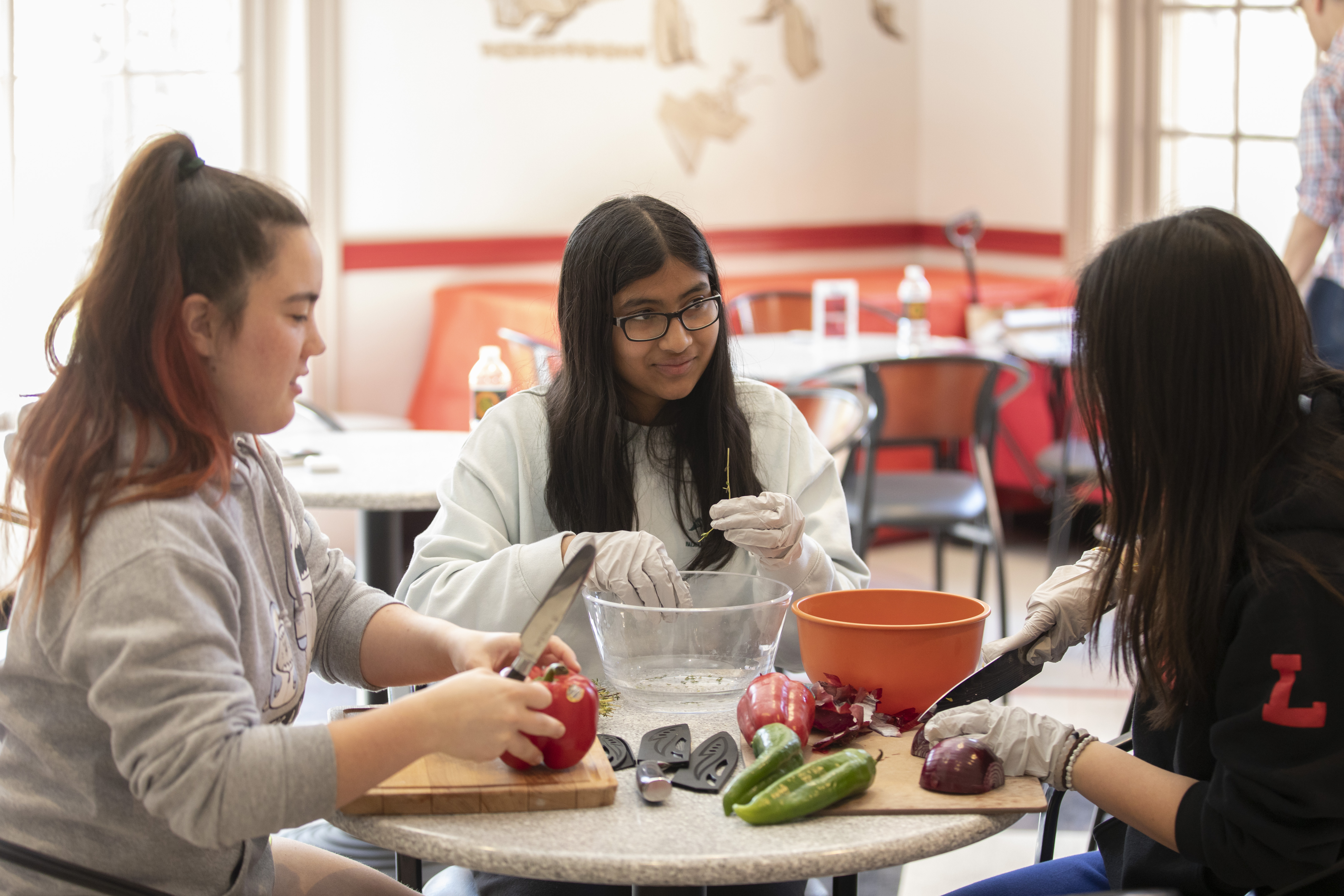Thursday, April 24
Welcoming The Inaugural Wellness Day
Sophie Cheng '24 (News Editor, 144th Board) and Celine Fong '25 in News | April 28, 2023

On Wednesday, April 12, Lawrenceville hosted its first ever Wellness Day. Starting at 9:00 AM, keynote speakers from DBT of South Jersey—a community of therapists specializing in dialectical behavioral therapy—spoke at the Kirby Arts Center on mental health and their personal experiences with it. Following the lecture, students signed up for various workshops that focused on topics ranging from mental health awareness, self-care, community-time, to the harmful effects of nicotine and marijuana.
Director of Counseling and Psychological Services Tonita Balcom spearheaded the planning for this year’s Wellness Day. Balcom and the counseling office worked with other professionals, both on and off campus, to “plan, promote, and enact” Wellness Day. It was important to not only branch out and “establish a network of individuals” who would effectively support Lawrenceville’s goals, but give students and faculty the opportunity to “consider what wellness means to them.” This is why the workshops and activities were geared towards helping community members practice greater mindfulness while “honing skills to further build resilience and capacity for acceptance of emotional distress.”
Looking ahead, Balcom noted that Lawrenceville is “steadily increasing its attention on student well-being.” One important stepping stone was the recent introduction of the role “Dean of Campus,” who is responsible for “assessing and promoting wellbeing” on campus. The inclusion of this role reflects that the School is “acknowledging the pressing need to be even more intentional about the ways in which we [handle] wellbeing.”
Wellness Day kicked off with a presentation from three keynote speakers, all with backgrounds in therapy and counseling. Bridget Holden ’26 noted that there were “a lot of things” she feels could have been significantly improved, especially in regards to the speakers. She expressed that the presentation’s “sheer length alone” made the it seem “less purposeful.”
Holden signed up for the “Clear Facts” workshop, an informational session hosted in the Heely Room of Woods Memorial Hall in which a speaker highlighted the “the timeline and process of nicotine and marijuana addiction and the effects of doing drugs at a premature age.” Although she acknowledged that teenage drug addiction is a prevalent and crucial issue, in her opinion, the presentation was “unoriginal and also repetitive,” making it “difficult to pay attention to.” From a scheduling perspective, she noted that having another special schedule amidst Discovery Days and no Saturday classes “added more stress to things.”
Lauren Williams ’24 viewed the keynote speakers’ presentation as “very general,” wishing for a more in-depth and specific look into teenage mental health. Jonathan Yang ’25 “enjoyed the barbecue” as he felt that it brought the community together. He proposed that Lawrenceville organize similar community bonding events that have a “positive effect on [most] students.”
Overall, students appreciated Wellness Day’s stress on the importance of learning about mental health. However, many students also agreed on wanting to see greater community emphasis in the future to raise awareness for mental health topics on campus.
Balcom’s goal for this year’s program was to “promote healthy and open dialogue about mental health, [because] across the country, the number of people dealing with mental health issues is on the rise.” At Lawrenceville, Balcom wants students to understand that “they are not alone in their struggle.” Moreover, another important goal of the event was to “provide opportunities for the community to engage in tried-and-true wellness practices and learn new practices.” Most importantly, Balcom hopes that Wellness Day will reaffirm “the School’s commitment to enhance community wellness.”
Related Articles
- Announcing: Valedictorian, Aurelian Speakers, and Faculty Speaker Sophie Liu ’27
- Welcoming Our New VPs for 2025-2026 Sophie Liu ’27
- Leo Min Takes the Win: The 2025-26 Student Body President Presents to You...ZUMBA Sophie Liu ’27
- Farewell to the V Formers of The Lawrence CXLIV Sophie Liu ’27
- Black History Month: Afrofest & Panels Angel Xin ’26 and Dorothy Lee ’26
Recent Articles
- Announcing: Valedictorian, Aurelian Speakers, and Faculty Speaker Sophie Liu ’27
- Senior Profile: Sophie Cheng ’25 Katherine Qiu ’27
- Debunking the Dining Hall Debate: Is Lawrenceville’s Dining Really That Bad? Isabelle Lee ’27
- Welcoming Our New VPs for 2025-2026 Sophie Liu ’27
- A Sweet Return: Melba Reopens with New Flavors and Community Spirit Ella Song ’27